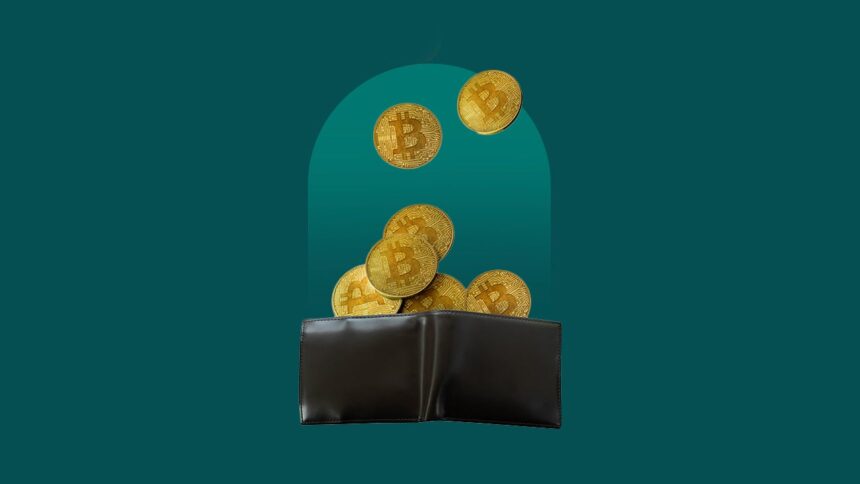DeFi — quick for decentralized finance — is a brand new imaginative and prescient of banking and monetary companies that’s based mostly on peer-to-peer funds via blockchain know-how. Through blockchain, DeFi permits “trust-less” banking, sidestepping conventional monetary middlemen similar to banks or brokers.
What’s in it for traders? DeFi guarantees to permit traders to “develop into the financial institution” by giving them alternatives to lend cash peer-to-peer and earn greater yields than these out there in conventional financial institution accounts. Traders may ship cash shortly anyplace around the globe, they usually can entry their funds by way of digital wallets with out paying conventional banking charges.
Right here’s how DeFi operates, the way it can profit people, the way it challenges conventional banking and the dangers it presents.
How DeFi works
The purpose of DeFi is to offer lots of the monetary companies that clients and companies presently take pleasure in — loans, curiosity on deposits, funds — however to make use of decentralized know-how to take action. In impact, DeFi modifications the business not a lot by altering the what however reasonably the how. That’s, DeFi creates new infrastructure to ship related monetary services.
To take action, it makes use of blockchain know-how and good contracts, amongst different instruments. Blockchain is a sort of ledger know-how that tracks all transactions on a given monetary platform. Consider it as a working document of all transactions on that particular blockchain, chronologically recorded. If Individual A pays cash to Individual B, that may be timestamped completely within the ledger.
“The constructing blocks of DeFi are good contracts, that are executable codes that may retailer cryptocurrencies and work together with the blockchain in line with its guidelines,” says Oleksandr Lutskevych, CEO and founding father of CEX.IO, a agency that facilitates DeFi and cryptocurrency.
To allow DeFi, good contracts mechanically execute transactions amongst contributors. When the contract’s situations are fulfilled, they self-execute their set of directions.
“DeFi permits for good contracts on the blockchain to take the place of trusted intermediaries — similar to banks or brokerage companies — for peer-to-peer transactions,” says David Malka, CEO and founding father of Truffle.vc, which invests in disruptive applied sciences like synthetic intelligence and Web3. “These peer-to-peer transactions in DeFi can embody all the things from funds, investments, lending and extra.”
On this world, cryptocurrency turns into the de facto foreign money for transactions and data.
“DeFi is the pure continuation of the imaginative and prescient outlined within the Bitcoin white paper of making digital money, so it’s a very thrilling time within the business,” Malka says.
Key advantages of DeFi
For people, the advantages of DeFi embody probably higher safety, probably decrease prices, higher varieties of companies and the flexibility to earn greater revenue via their crypto holdings. As well as, safety measures like on-chain information permit for verifying and recording transactions on the blockchain. These advantages and others are enabled via decentralized apps created by varied teams.
“Decentralized functions, or dApps, permit individuals to switch capital anyplace on the earth (with quick settlement and at a low value), peer-to-peer borrowing and lending, crypto alternate companies, NFTs, and extra companies like crypto pockets and storage options,” Lutskevych says.
“DApps are preprogrammed by builders and relying on their objective they’ll execute transactions on a particular blockchain community, settle agreements between purchaser and vendor, or transfer property from a decentralized alternate to a decentralized lending platform,” he says.
In brief, the one restrict is the flexibility to code an app that executes your directions.
One presently common profit for cryptocurrency traders is the flexibility to generate revenue. Crypto staking, for instance, permits homeowners of a coin to assist help that coin’s ecosystem and earn revenue by serving to to validate transactions. It’s a part of what’s known as yield farming.
“Anybody can present crypto property as liquidity or loans via what’s known as yield farming that pays the depositor with curiosity and charges,” says Truffle.vc’s Malka. “Yield farming is how you set your crypto to work as a way to earn passive revenue.”
To offer their companies, many dApps want liquid cryptocurrency out there on the app. So they provide to pay revenue, a yield, in alternate for traders placing up their cash for some interval. In impact, they supply an revenue for individuals who provide liquidity — much like curiosity paid on deposits at conventional banks, however riskier (as mentioned under).
Relying on the kind of dApp, cryptocurrency homeowners can farm yield via varied companies similar to:
So these strategies of producing yield present one other supply of income for traders, although you’ll owe taxes on crypto income simply as you’d conventional sources of revenue.
“Even the lowest-risk yield farms can simply return rates of interest a number of occasions these of financial savings accounts at banks,” Malka says. “That is notably essential throughout bear markets — the place the worth of cryptocurrencies like Bitcoin or Ethereum are trending downwards.”
Dangers of DeFi for traders
Although DeFi appears like a courageous new world for finance, DeFi does current varied drawbacks and dangers to would-be contributors:
- Complexity: Taking part in DeFi isn’t so simple as happening to a neighborhood financial institution. “DeFi generally is a problem for newcomers to navigate due to the huge quantity of DeFi functions and funding alternatives on the market,” Malka says. “Even the onboarding course of may be complicated for some individuals as a result of it’s essential to transfer cash from an alternate like Coinbase right into a noncustodial pockets, similar to via MetaMask, to start accessing the world of DeFi.”
- Outright scams: Loads of fraudsters wish to snare new crypto traders enticed by yields which will drastically outpace these on supply at conventional monetary establishments. A excessive yield could be too good to be true.
- Theft: Past the outright scams, it’s doable that crypto cash could also be stolen by way of exploits, particularly given the vulnerabilities of coding in some dApps. “In these exploits, funds may be misplaced, after which it comes right down to the core workforce behind the DeFi challenge to resolve how, if in any respect, to compensate the contributors,” says CEX.IO’s Lutskevych.
- Value: Interacting with good contracts requires what’s known as a fuel price, like a token to make a machine run. A number of steps alongside the best way may simply run up prices, and that might show particularly expensive for these with modest bankrolls.
- Volatility: Although yield farming might help mitigate your draw back within the unstable world of cryptocurrency, you’ll nonetheless should endure gorgeous fluctuations to earn what may very well be modest yields. In a day, cryptocurrency may simply lose a yr’s yield and extra.
- Fluctuating yields: On prime of fluctuating cryptocurrencies, DeFi contributors should take care of fluctuating yields. Yields can fall as extra provide helps a given app.
- Dying tasks: A given dApp could finally be left to die on the vine, because the core workforce creating it pursues different tasks. “If, at some point, they resolve to stop, the logic of the protocol will execute as is, however no additional upgrades will happen,” Lutskevych says.
These are a couple of of the largest dangers in DeFi and ones that traders pondering of collaborating want to grasp earlier than they absolutely commit. Though you will need to take into account the potential charges, current improvements similar to Layer-2 options have helped cut back prices.
How does DeFi problem conventional banking?
One of many greatest claims of DeFi proponents is that this new monetary know-how will disrupt conventional banking. Within the excessive case, they are saying DeFi would completely disintermediate — wipe out the intermediary — in monetary transactions, to get replaced by decentralized networks of friends.
But when DeFi is so highly effective, why wouldn’t banks merely co-opt the know-how and supply it?
“We’re positively seeing conventional monetary establishments more and more leverage blockchain and distributed ledger know-how,” says Malka of Truffle.vc. “You’ll see this actually speed up within the coming years as these conventional establishments all acknowledge the inherent safety of being on the blockchain.”
Malka expects that banks will create varied DeFi merchandise “to remain aggressive and related.”
“You’ll be able to simply think about a situation the place a conventional financial institution creates yield-farming alternatives for his or her purchasers to take part in,” he says.
However such a change could be simpler on paper than in follow because of the regulatory burden, says CEX.IO’s Lutskevych, creating problems for conventional companies that even wish to accomplish that.
“Integrating blockchain know-how would require revision of many well-established processes whereas opening them as much as extra dangers,” he says. “Extra so, topic to regulation, these establishments would wish approvals for these actions from regulators.”
Backside line
Those that wish to get began in DeFi, past the fundamentals of cryptocurrency buying and selling, ought to proceed rigorously and make sure that they work with a dependable counterparty. Although the yields supplied by DeFi are engaging, don’t let the potential return blind you to the opposite dangers. A downdraft in cryptocurrency markets may shortly wipe out any small positive factors from yield farming, and outright scams or theft may wipe out your crypto wealth even quicker.
— Bob Haegele contributed to an replace of this story.











